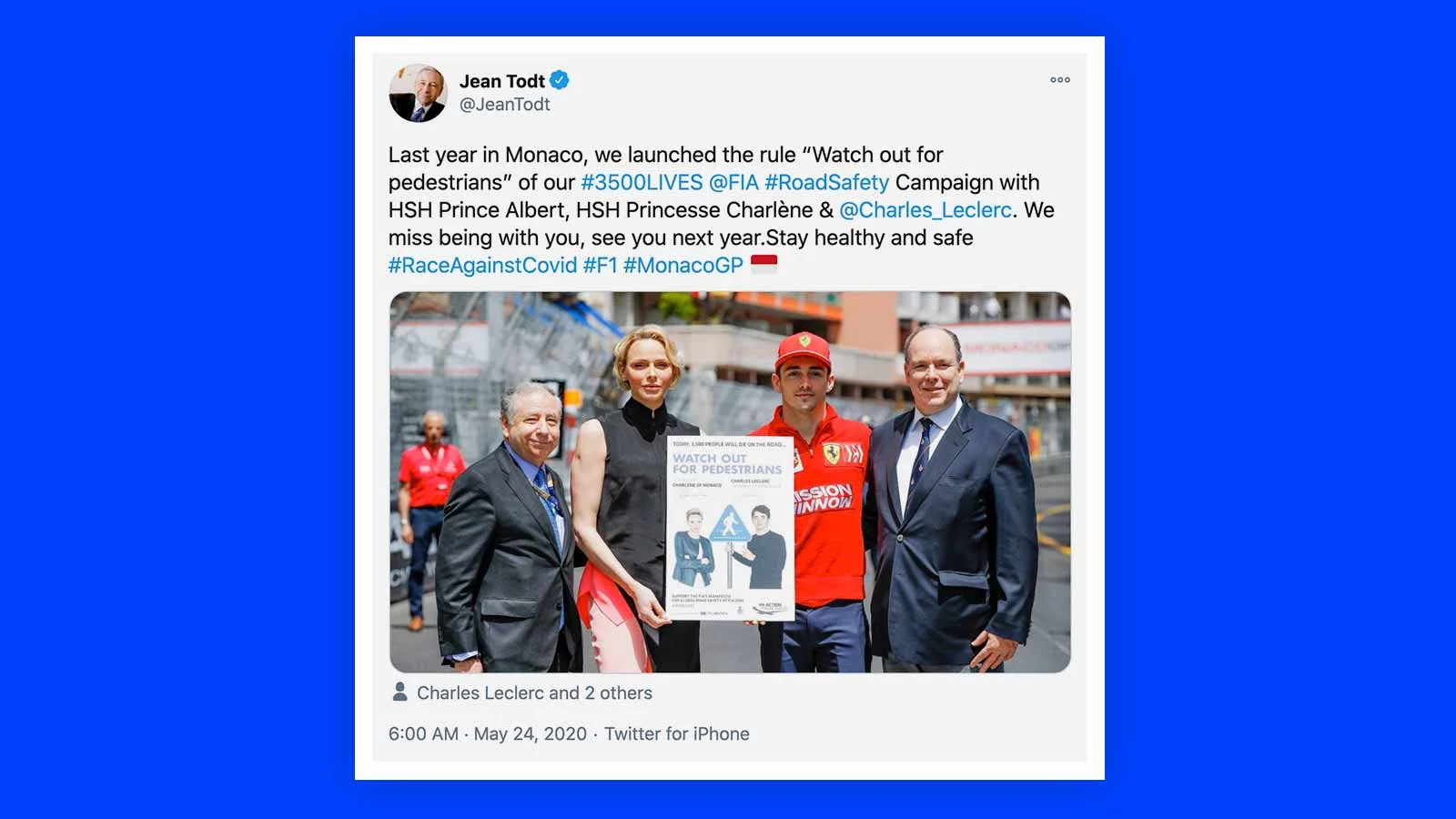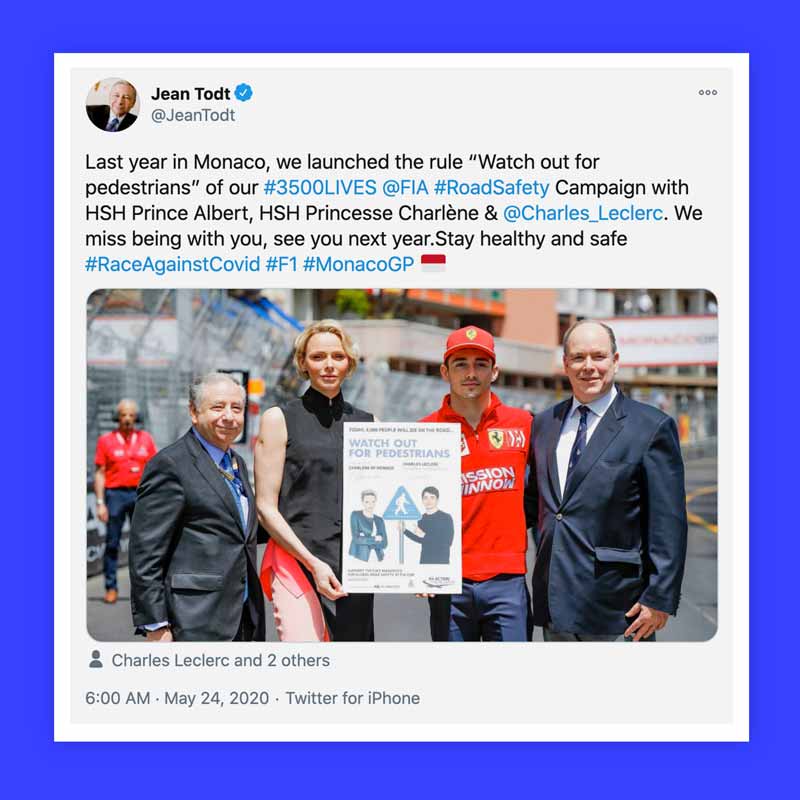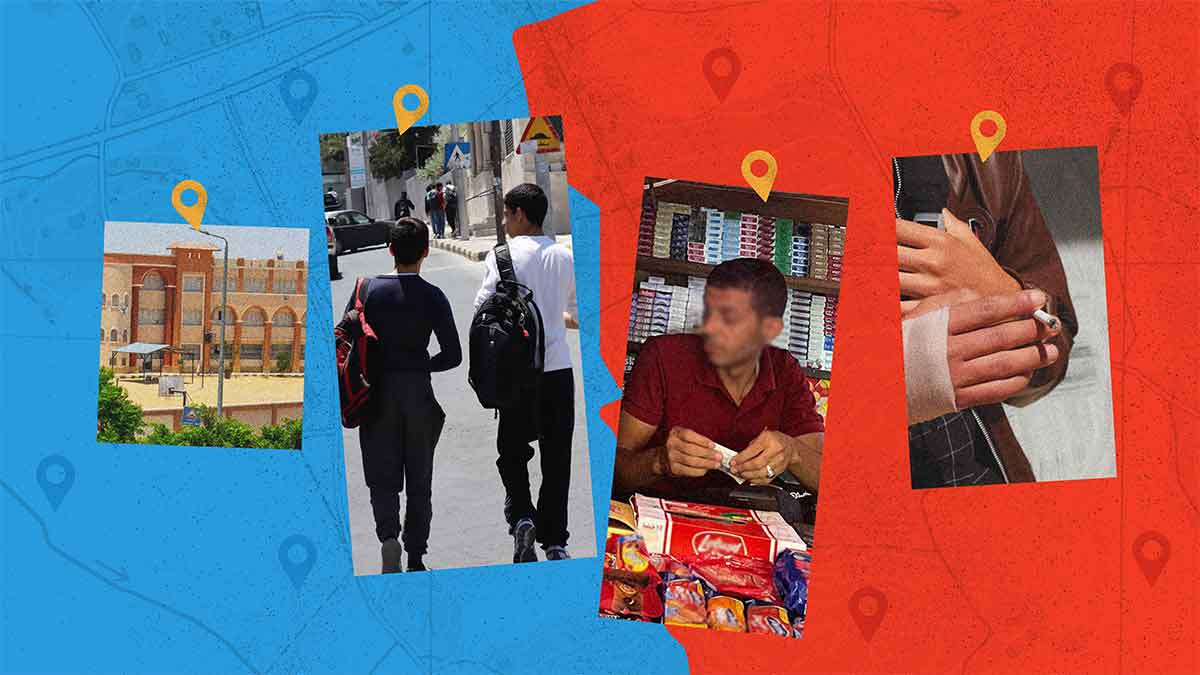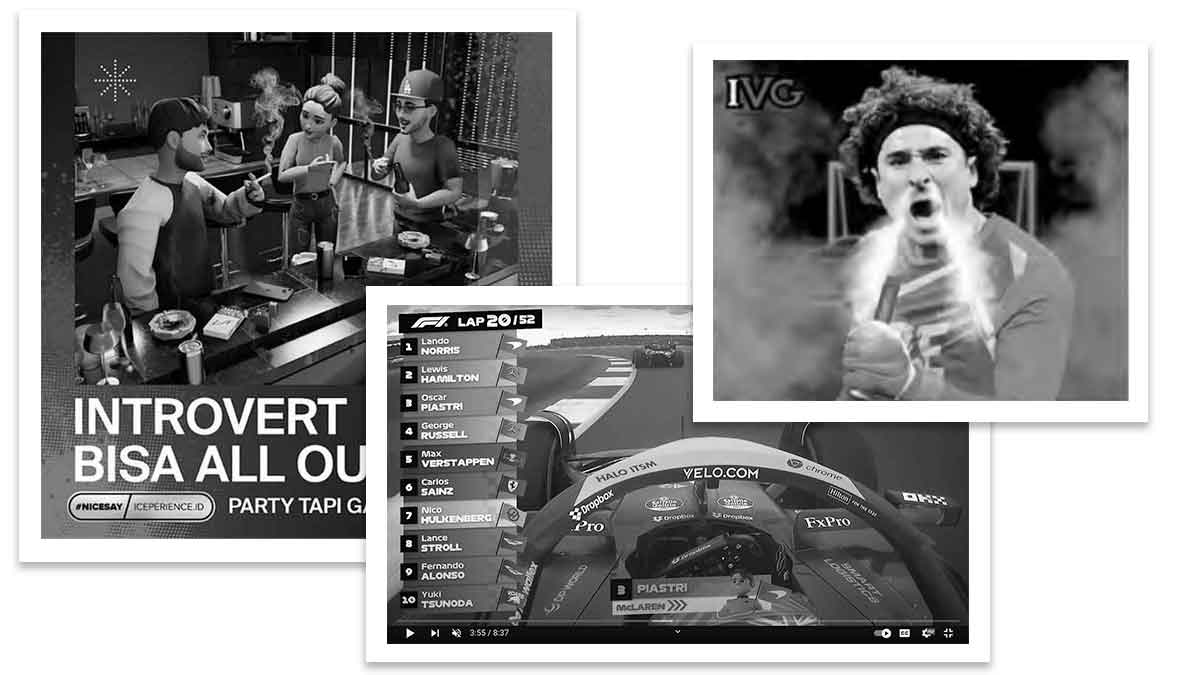- Resources
- News
-
-
Get Email Updates
Sign up for STOP's emails and never miss an update on our latest work and the tobacco industry's activity.
-
Get Funding
Ready to tackle industry interference? You could be eligible for a grant.
-
Share a Tip
Do you have information on tobacco industry misconduct in your country? Let us know.
-
Get Email Updates
Industry Marketing
October 06, 2020

In 2019, researchers noticed something concerning. Tobacco sponsorship spending in F1, which had been steadily waning after a 2006 FIA recommendation to drop all tobacco sponsorship, suddenly rose. This jump in spending wasn’t just a blip in the data. In 2020, it rose again.

Around the same time, F1 audiences around the world likely noticed something, too: Tobacco companies’ messaging had reappeared on the Ferrari and McLaren teams’ cars and livery. This time, however, it wasn’t the blatant promotion of cigarette brands that the tobacco companies were paying for, as they had in the past.
It was a more subtle, cryptic form of marketing called brand stretching, where “…a tobacco brand name, emblem, trademark, logo or trade insignia or any other distinctive feature (including distinctive colour combinations) is connected with a non-tobacco product or service in such a way that the tobacco product and the non-tobacco product or service are likely to be associated,” per the WHO Framework Convention on Tobacco Control’s (FCTC) Article 13 Guidelines.
Skirting the sport’s 2006 recommendation to halt tobacco advertising, Philip Morris International (PMI) now hides behind the branding of its mysterious new initiative, “Mission Winnow,” while British American Tobacco (BAT) flaunts its new tagline, “A Better Tomorrow,” along with its various nicotine products.
Tobacco companies have found a way back to the coveted F1 audience, and it appears the FIA is doing nothing to stop it.
This resurgence of tobacco money expose F1’s 471 million unique viewers around the world, including its increasingly younger fanbase, to tobacco company messaging and influence. Equally as troubling, it highlights the extreme contradictions in the FIA’s commitment to the United Nations Sustainable Development Goals (SDGs).
Goal 3 of the SDGs commits to promoting good health and well-being. Target 3.6 of that goal, for which the FIA promotes its enthusiasm, focuses on road safety. The FIA readily jumped on board to support the target, and in 2015, FIA president Jean Todt was appointed as the UN Special Envoy for Road Safety.
Yet, within the very same goal, the FIA is actively hindering another target and therefore obstructing the entire goal, defying UN norms and allowing an obvious conflict of interest to go unchecked. Target 3.a commits to strengthening the implementation of the FCTC. The treaty—a fixture of Goal 3—aims to reduce the demand of tobacco and thus mandates a ban on tobacco advertising, promotion and sponsorship. By allowing F1 teams, namely Ferrari and McLaren, to accept tobacco sponsorship money and promote the companies’ messaging, the FIA is furthering the tobacco industry’s interests. This directly defies the FCTC and hinders the accomplishment of target 3.a and Goal 3.
“There is a conflict between Mr. Todt’s role as President of the FIA, the governing body of a sport that is promoting tobacco industry interests, and his public health commitments as a UN representative,” Phil Chamberlain from the University of Bath, a partner in STOP, said in a recent press release.
The presence of tobacco money in F1 also highlights the FIA’s contradictory claims of support for UN climate change initiatives. In January of 2020, in the midst of rising tobacco sponsorship spending, the FIA signed the UN’s Sports for Climate Action Framework. A major principle of the Framework is to “reduce overall climate impact.” How much impact F1 can really have while simultaneously promoting the messaging of an industry that contributes to the degradation of the environment and produces an estimated 845,000 tons of cigarette butts each year is questionable. Amplifying the tobacco industry’s products and initiatives substantially hinders any gains the FIA makes in reducing its carbon footprint or contributing to UN climate initiatives.

Jean Todt and Charles Leclerc, wearing PMI branding, promote an FIA road safety campaign
Tobacco-company-sponsored F1 teams show no signs of remorse for promoting tobacco industry interests or allowing tobacco social media influencers into racing events. When Ferrari driver Charles Leclerc posed for pictures after joining the FIA’s road safety campaign, he donned an unmistakably PMI-branded Mission Winnow shirt. And McLaren Racing CEO Zak Brown, whose team receives sponsorship money from BAT, recently predicted tobacco sponsorships will increase, saying, “This is me speculating that others will see what Mission Winnow and BAT are doing, that it’s working for them…”
It’s up to the FIA to demonstrate good governance and fulfill its regulatory role in F1 racing. To honor its commitments to UN initiatives and the SDGs, Jean Todt and the FIA need to fully and completely ban all tobacco sponsorship spending in F1.


